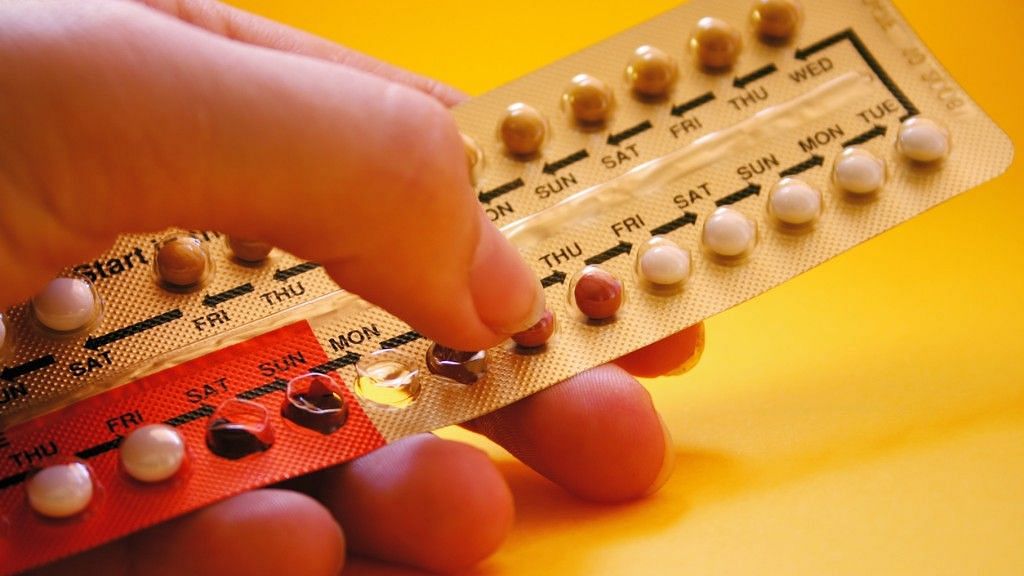Planning to or Already on the Pill, Ladies? Stop and Read This
Oral contraception is great, but are you making a fully informed choice? Doctors explain its effects on your body.

A recent Instagram post by illustrator Jaime Squire spoke about the need for more easily available information about contraceptive pills. In the post, Jaime talks about how the pills made her a different person and she was just not prepared for it.
Pills are great, don’t get me wrong. Oral contraception offers freedom to women in a manner unlike a lot of other things. If you want to be on it, you go, girl. However, before you do, ensure that you are making an informed choice. Several women, after being on the pill for a couple of months, talk about the unexpected effects of it on their bodies.
Migraine, Suicidal Thoughts and the Female Burden
A case in point is of a 26-year-old professional, Aayushi Thakur Sinha, who was on the pill for over a year due to medical conditions. While it helped her body in many ways, she was also caught unaware with a specific side-effect.
Another common side-effect associated with oral contraception is mood swings. Did Aayushi face them too?
The topic of mood swings brings us to the second case in point, of 27-year-old Garvita Khybri who was on the pill for a period of four months, once again for a medical condition. She adds that the pill affected her mood to the extent of making suicidal thoughts a common occurrence.
And lastly, we come to another important concern - why is the burden of contraception only women’s to bear? Several women feel pressured, by parents or peers, sometimes coupled with a desire to please their partner, to go on the pill, without being fully aware of the extent of its effects on their body.
Raising the same concern is Namratha Rao, a 27-year-old public health professional and dog behaviourist.
Namratha’s concerns are not ill-placed at all. According to the National Family Health Survey, 2015-16, which was conducted by the Ministry of Health, 3 out of 8 men believed that contraception is ‘women’s business’ and men shouldn’t bother about it.
She was on the pill for 1.5 years and about 2-3 years, at two different points in her life. When it comes to side-effects like weight gain and mood swings, Namratha says she faced neither, but it could also be due to her regular workouts.
To read more about myths and side effects of oral contraception, click here.
In the meantime, we reached out to two doctors to understand the biology of oral contraception better.
‘Do Not Combine Pills With Smoking’
Dr Sonia Naik, Associate Director and Head of Unit, Obstetrics and Gynaecology, Max Multispeaciality Centre, Panchsheel Park, says that we need to remember that all pills are not for everyone.
When it comes to one of the lesser known things about contraception, one very important and harmful habit is smoking.
To give perspective, Dr Naik adds that if the chances of a stroke are 1 for every 1 lakh women, when combined with smoking, it increases 20-30 times.
Know Your Family History
Dr Naik cannot emphasise enough the importance of the medical history of your family.
She adds that though most girls who approach her for oral contraception are very well aware, they still do not know about the importance of family history and not coupling smoking with oral contraception.
She further adds that young girls should remember to keep themselves adequately hydrated when on the pill, especially in case of a long journey.
No Scientific Evidence For Weight Gain
Dr Swati Mittal, Senior Consultant, Obstetrics and Gynaecology at Fortis Memorial Research Institute says that when it comes to issues like weight gain, it’s important to note that there really is no scientific evidence to support this.
Be Regular, Always
Being regular with the pill is of utmost importance, says Dr Mittal.
From her own observation and experience, Dr Mittal adds that most of her patients who ask for the pill for contraceptive purposes are around 25 years of age and form only 10 percent of her total patients.
Efficacy of Oral Contraception
You need to keep in mind the efficacy of the pill, says Dr Mittal. If you take it immediately after the period ends, it won’t be too effective. You need to take seven pills for seven days before they begin to work. So, if you take it at the close of the period, by the time the efficacy kicks in, seven days later, ovulation would have already happened.
Dr Mittal says that in her experience, women have hardly come to her to take it as a form of contraception. Most take them for medical conditions, she adds. Mostly the age group is women in their 20s.
Pills Don’t Provide Protection Against STDs, STIs
Both doctors also add that before anyone goes on the pill, they need to remember that oral contraception is no protection against STDs and STIs. Hence use barrier contraception as well in the form of condoms.
Dr Mittal adds that oral contraception reduces your chances of ovarian, endometrial, uterine and even colon cancer.
Like Dr Mittal, Dr Naik agrees that pills of this nature reduce the chances of ovarian cancer. They reduce the chances of ovarian cysts as well, but it’s important, she insists, to take into account each woman’s individual detailed family history.
(At The Quint, we are answerable only to our audience. Play an active role in shaping our journalism by becoming a member. Because the truth is worth it.)